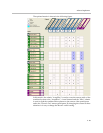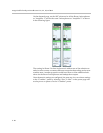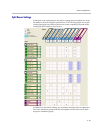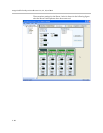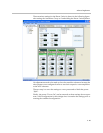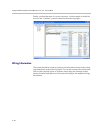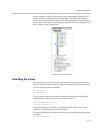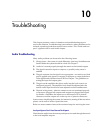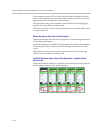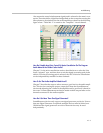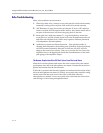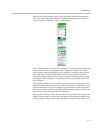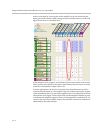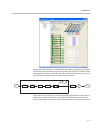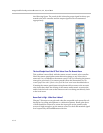
10 - 1
10
TroubleShooting
This chapter presents a series of situations and troubleshooting steps to
resolve the situation. Troubleshooting is most effective when problems can be
isolated, reproduced, and then resolved one at a time. This “divide-and-con-
quer” approach will be used in this chapter.
Audio Troubleshooting
Many audio problems can be traced to the following issues:
1. Wiring issues - the system is wired differently from how SoundStructure
Studio thinks the system should be wired. See Chapter 7.
2. Audio isn’t routed properly through the matrix to the desired outputs
3. The signal is muted at inputs or outputs, or possibly safety mute is
enabled
4. The gain structure for the signal is not appropriate - too much or too little
gain is applied at the inputs or outputs or the input or output fader has a
value significantly different from 0 dB. See Chapter 7 for guidelines on
setting the input and output gains
5. The gain on the amplifier that drives audio into the local room is not
configured properly. The amplifier level should be adjusted after the
remote audio input levels have been adjusted on the SoundStructure.
6. Physical wiring issues - phoenix connectors are not terminated properly
or inputs are plugged into outputs and outputs are plugged into inputs
by mistake - remember the inputs are on the bottom row of phoenix
connectors and the outputs are on the top row of phoenix connectors.
In most cases, simplifying the system, for instance by muting all but one micro-
phone, can be used to isolate a particular issue.
Below are some common issues with associated steps for resolving the issue.
Local participants Can’t Hear Remote Participants
Check that the audio from the remote participants is routed through the matrix
to the local amplifier outputs.



